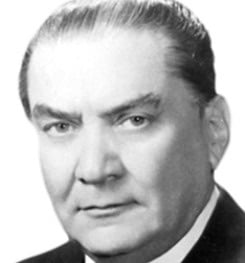A Song for Wall Street
In Nicaragua, my Nicaragua,
What can you buy for a penny there?—
A basketful of apricots,
A water jug of earthenware,
A rosary of coral beads
And a priest’s prayer.
And for two pennies? For two new pennies?—
The strangest music ever heard
All from the brittle little throat
Of a clay bird,
And, for good measure, we will give you
A patriot’s word.
And for a nickel? A bright white nickel?—
It’s lots of land a man can buy,
A golden mine that’s long and deep,
A forest growing high,
And a little house with a red roof
And a river passing by.
But for your dollar, your dirty dollar,
Your greenish leprosy,
It’s only hatred you shall get
From all my folks and me;
So keep your dollar where it belongs
And let us be!
Salomón de la Selva, “A Song for Wall Street”: Tropical Town and Other Poems (New York: John Lane, 1918). This poem is in the public domain.
In Recovering the U.S. Hispanic Literary Heritage, Volume III (Arte Público Press, 2000), edited by María Herrera-Sobek and Virginia Sánchez Korrol, novelist and editor Silvio Sirias contributed the essay, “The Recovery of Salomón de la Selva’s Tropical Town: Challenges and Outcomes.” Sirias noted, “The works in Tropical Town also exhibit a strong indebtedness to Latin American Modernismo. De la Selva, a friend and fellow countryman of Rubén Darío, the best known and most imitated of the modernistas, was intimately familiar with this important Hispanic literary movement. […] Darío also provides de la Selva with an example through which he can poetically criticize U.S. foreign policy. […] Several of de la Selva’s poems echo Darío’s indictment. The first composition is ‘A Song for Wall Street.’ The poet asks ‘What can you buy for a penny [two pennies, a nickel] there?’ The first three stanzas of the poem are openly amicable. However, the closing stanza is as biting as Darío’s work […].”

